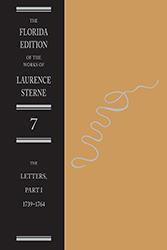Birds in Literature
Leonard Lutwack
Hardcover: $59.95
"Is the enlightened general reader, like the Carolina Parakeet, an extinct species now? If not, the book will find a substantial audience. . . . No one else has dealt with birds in the whole of the Western literary tradition as Lutwack has."--Laurence Avery, University of North Carolina, Chapel Hill
Although they are as commonplace as our backyards, birds remain wild, unpossessed by humans, living "beside us, but alone," as Matthew Arnold observes and as Leonard Lutwack explores in this study of the depiction of birds in literature.
The very attributes that make birds so familiar--their flight and song--retain an air of mystery that sets them apart from other animals. They appear to exist effortlessly in a state of mixed animal and spiritual being that humans long to attain. This simultaneous familiarity and transcendence gives birds a wide range of meaning in the works that Lutwack describes. His examples--both expected and surprising--come in some measure from Greco-Roman writers but primarily from the poetry and prose of American and British writers of the nineteenth and twentieth centuries.
Lutwack divides his material into five sections: birds in poetry and as metaphor, including the classical nightingale and the swan and the birds of such poets as Dickinson, Whitman, and Stevens; birds and the supernatural, including ancient beliefs in birds as images and disguised gods as well as some interesting modern revivals of bird-gods--the quetzal in Lawrence, the crow in Ted Hughes, and the hawk in Jeffers; birds that are trapped, hunted, or killed in sacrifice, such as Coleridge's albatross, Ibsen's wild duck, Chekhov's seagull, Kosinski's painted bird; birds and the erotic, with special emphasis on Lawrence's juxtaposition of birds and lovers, the association of white birds with chastity, and the traditional identification of women with docile birds and men with raptors; and a section on literature and the future of birds that includes strategies for dealing with the increasing threat to real birds posed by humans. Literature has made and must continue to make the reading public sensitive to nature, Lutwack writes, and literary birds may prove to be our best link to it.
Leonard Lutwack is professor emeritus of English at the University of Maryland. He is the author of The Role of Place in Literature and Heroic Fiction: The Epic Tradition and American Novels of the Twentieth Century. For years he has been an avid amateur birdwatcher and a member of the executive board of the Prince George's Audubon Society.
Although they are as commonplace as our backyards, birds remain wild, unpossessed by humans, living "beside us, but alone," as Matthew Arnold observes and as Leonard Lutwack explores in this study of the depiction of birds in literature.
The very attributes that make birds so familiar--their flight and song--retain an air of mystery that sets them apart from other animals. They appear to exist effortlessly in a state of mixed animal and spiritual being that humans long to attain. This simultaneous familiarity and transcendence gives birds a wide range of meaning in the works that Lutwack describes. His examples--both expected and surprising--come in some measure from Greco-Roman writers but primarily from the poetry and prose of American and British writers of the nineteenth and twentieth centuries.
Lutwack divides his material into five sections: birds in poetry and as metaphor, including the classical nightingale and the swan and the birds of such poets as Dickinson, Whitman, and Stevens; birds and the supernatural, including ancient beliefs in birds as images and disguised gods as well as some interesting modern revivals of bird-gods--the quetzal in Lawrence, the crow in Ted Hughes, and the hawk in Jeffers; birds that are trapped, hunted, or killed in sacrifice, such as Coleridge's albatross, Ibsen's wild duck, Chekhov's seagull, Kosinski's painted bird; birds and the erotic, with special emphasis on Lawrence's juxtaposition of birds and lovers, the association of white birds with chastity, and the traditional identification of women with docile birds and men with raptors; and a section on literature and the future of birds that includes strategies for dealing with the increasing threat to real birds posed by humans. Literature has made and must continue to make the reading public sensitive to nature, Lutwack writes, and literary birds may prove to be our best link to it.
Leonard Lutwack is professor emeritus of English at the University of Maryland. He is the author of The Role of Place in Literature and Heroic Fiction: The Epic Tradition and American Novels of the Twentieth Century. For years he has been an avid amateur birdwatcher and a member of the executive board of the Prince George's Audubon Society.
No Sample Chapter Available
From Choice review cited herein: "it should become a standatd reference for those studying literary uses of birds...."
--Book Review Digest
"The book is a masterful study of the ways in which birds have inspired poets and novelists by providing them with figures for the mysteries of the human condition."
--Modern Age - A Quarterly Review












